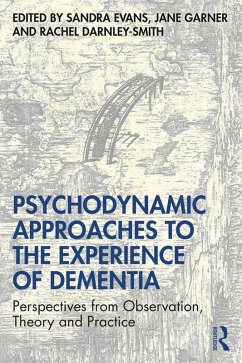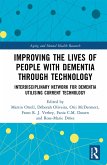Currently there is no cure for dementia, but the psychosocial and therapeutic approaches described in this volume have appeared to help people, both patients and carers, feel more contained and less lonely and isolated. Psychoanalytic theory provides a disciplined way of thinking about the internal world of an individual and their relationships. Each author provides their own commentary on the personal and interpersonal effects of dementia, endeavouring to understand behaviours and emotions which may otherwise seem incomprehensible. The subject is approached from a psychodynamic perspective, considering the unconscious, previous and current experiences and relationships, including those between patients and staff.
Psychodynamic Approaches to the Experience of Dementia illustrates the practical and theoretical thinking of clinicians from a wide range of disciplines who are engaged in the care of people in late life with a diagnosis of dementia. It will be essential reading for mental health and health professionals in practice and training in the field of dementia.
Dieser Download kann aus rechtlichen Gründen nur mit Rechnungsadresse in A, B, BG, CY, CZ, D, DK, EW, E, FIN, F, GR, HR, H, IRL, I, LT, L, LR, M, NL, PL, P, R, S, SLO, SK ausgeliefert werden.









